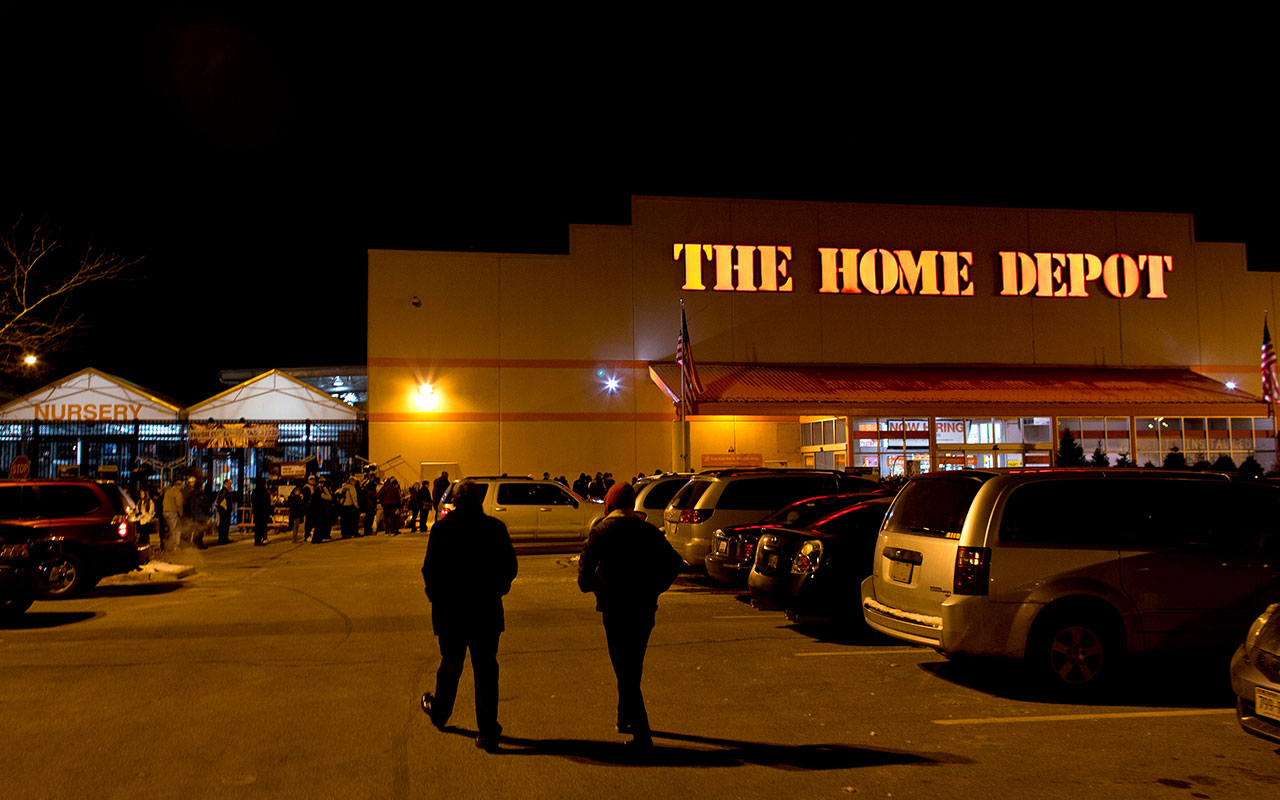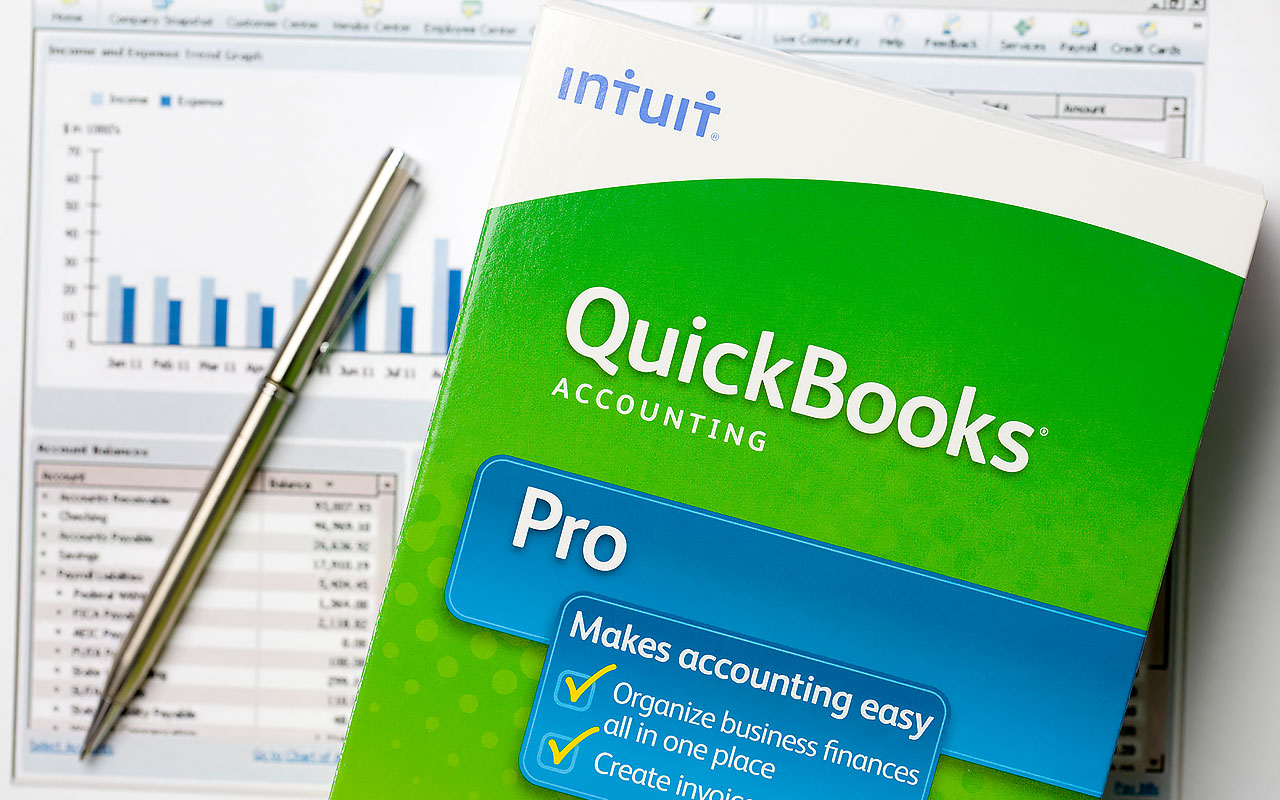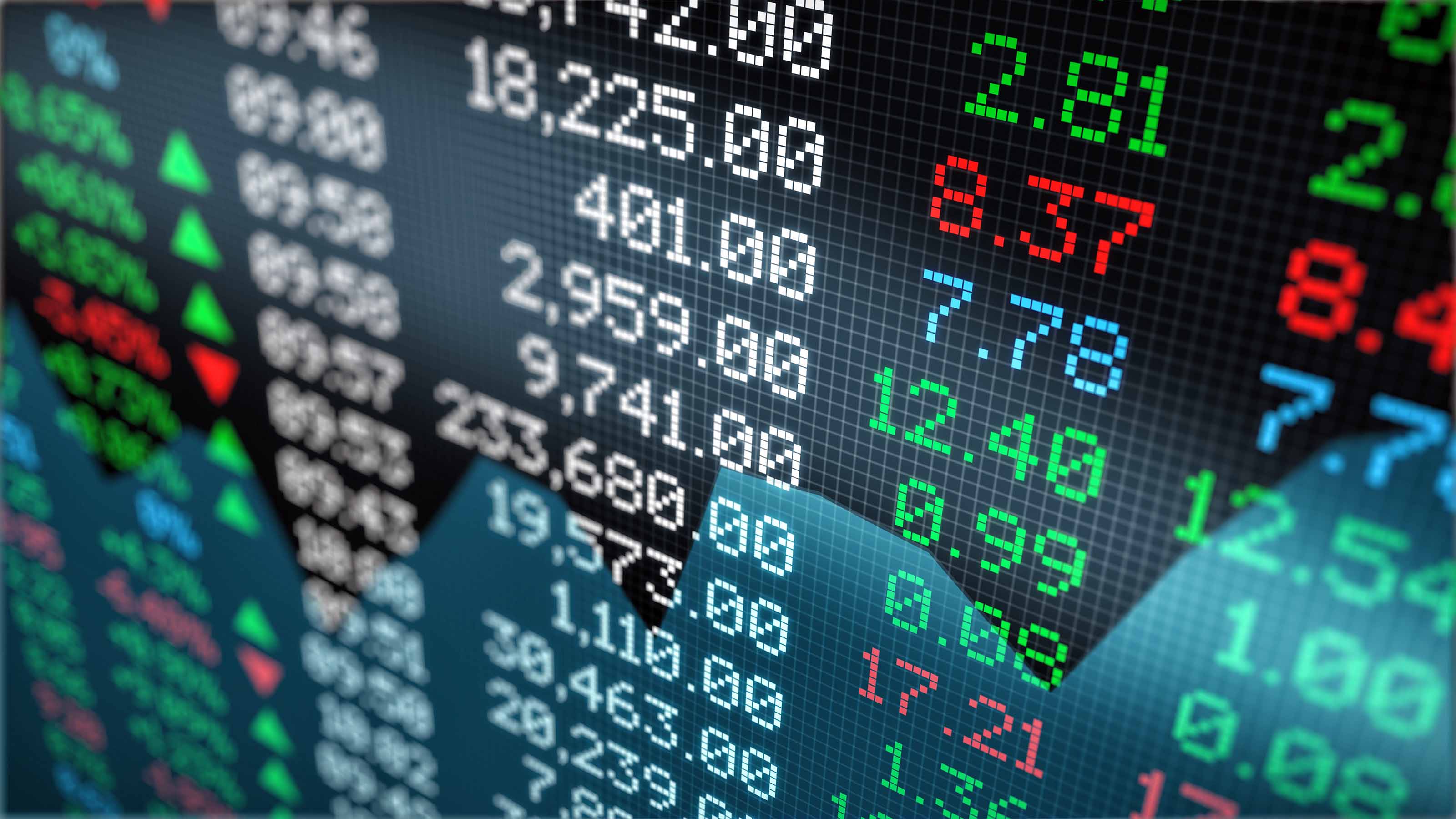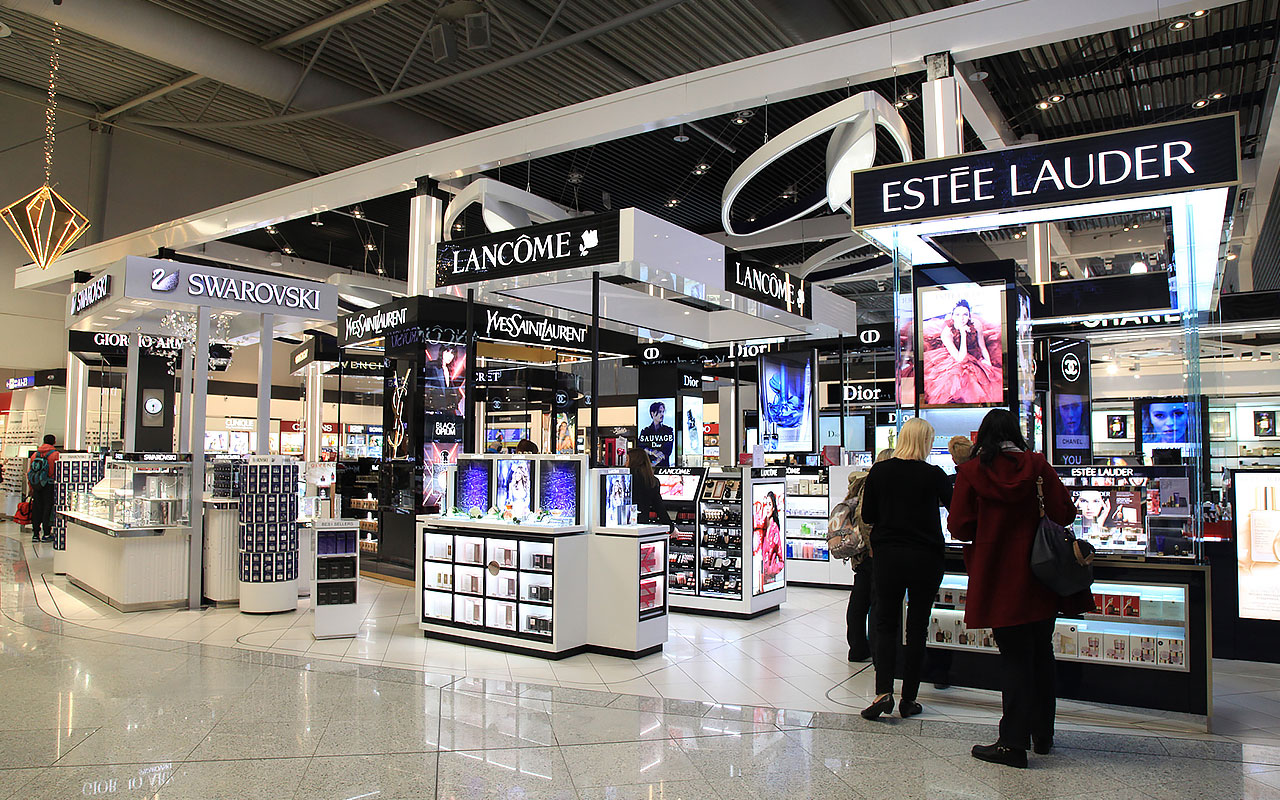10 S&P 500 Stocks to Buy for Long-Term Outperformance
Although every investor probably should have at least some money invested in an index fund, right now, those same investors should consider piling into a few individual S&P 500 stocks.


Profit and prosper with the best of Kiplinger's advice on investing, taxes, retirement, personal finance and much more. Delivered daily. Enter your email in the box and click Sign Me Up.
You are now subscribed
Your newsletter sign-up was successful
Want to add more newsletters?

Delivered daily
Kiplinger Today
Profit and prosper with the best of Kiplinger's advice on investing, taxes, retirement, personal finance and much more delivered daily. Smart money moves start here.

Sent five days a week
Kiplinger A Step Ahead
Get practical help to make better financial decisions in your everyday life, from spending to savings on top deals.

Delivered daily
Kiplinger Closing Bell
Get today's biggest financial and investing headlines delivered to your inbox every day the U.S. stock market is open.

Sent twice a week
Kiplinger Adviser Intel
Financial pros across the country share best practices and fresh tactics to preserve and grow your wealth.

Delivered weekly
Kiplinger Tax Tips
Trim your federal and state tax bills with practical tax-planning and tax-cutting strategies.

Sent twice a week
Kiplinger Retirement Tips
Your twice-a-week guide to planning and enjoying a financially secure and richly rewarding retirement

Sent bimonthly.
Kiplinger Adviser Angle
Insights for advisers, wealth managers and other financial professionals.

Sent twice a week
Kiplinger Investing Weekly
Your twice-a-week roundup of promising stocks, funds, companies and industries you should consider, ones you should avoid, and why.

Sent weekly for six weeks
Kiplinger Invest for Retirement
Your step-by-step six-part series on how to invest for retirement, from devising a successful strategy to exactly which investments to choose.
Do you own Apple (AAPL), Amazon (AMZN), Microsoft (MSFT) or Netflix (NFLX)?
Congratulations if you do, because these members of the Standard & Poor’s 500-stock index are up anywhere between 26% and 79% so far this year – and in the case of Netflix, its nearly 80% gains have come despite a 17% slide in July due to lower-than-expected subscriber growth.
With four months left in the year, you’re sitting pretty. Passive investors? Not so much. The problem is, as of mid-July, the four aforementioned S&P 500 stocks (according to research by S&P Dow Jones Indices) accounted for half the return of the index. At the time of the research, the index had gained about 6%, which means those four stocks accounted for 3 percentage points, and 496 companies accounted for the other 3.
It’s troubling that so few stocks are accounting for the lion’s share of the returns, but the message right now is clear: It’s a “stock picker’s market.” Thus, while every investor probably should have at least some money invested in an index fund, right now, those same investors should consider piling into a few individual S&P 500 stocks.
Here are 10 of the index’s best options not just for the rest of 2018, but for several years beyond that.
Data is as of Sept. 5, 2018.

- Market value: $466.9 billion
All three major social media companies – Facebook (FB, $167.18), Twitter (TWTR) and Snap (SNAP) – are experiencing some sort of important metric decline for the first time in a long time, prompting investors to pull back from all three companies’ stocks.
The good thing for Facebook is it makes more money in a quarter – $5.1 billion in Q2 2018 – than Twitter and Snap made in annual revenue this past year.
“Facebook has a strong track record of managing through monetization transitions and coming out stronger on the other side,” Deutsche Bank wrote about the company after its disastrous second-quarter results were released in late July. “The stock could tread water near term but we would take advantage of this transition over the medium term to add to long-term positions.”
FB stock isn’t treading water – it’s actually losing ground fast in the wake of worries about its ability to self-police and fight back against misinformation campaigns. But you might consider the near-term losses a bargain; if you believe social media can evolve and change for the better, Facebook is the stock for the long haul.

Home Depot
- Market value: $236.5 billion
Home Depot (HD, $204.15) announced second-quarter results Aug. 14 that weren’t just strong – they were much better than the analysts were expecting. Earnings came to $3.05 per share to beat the consensus estimate by 21 cents, and revenues of $30.5 billion were $430 million over the mark.
But the home improvement retailer’s stock barely budged.
The number that impressed me was same-store sales, which grew by 8% on a global basis – 140 basis points higher than what analysts were expecting. Home Depot’s same-store sales on a 24-month stacked basis have grown an average of 7.2% putting it in an excellent position to benefit from a strong housing market and economy.
“The housing market is still in very good shape,” says Joe Feldman, an analyst with Telsey Advisory Group. “People that are living in their homes, which is 96% of the homeowners out there still continue to buy, so as long as they continue to feel good about home values, they’ll continue to spend (at places like Home Depot).”
Which makes HD among the top S&P 500 stocks to buy not just for today, but for a long time down the road.

Boeing
- Market value: $201.9 billion
If there’s a time to jump into Boeing (BA, $346.68), that time very well might be now. It’s about 7% off its all-time high set in June, and free cash flow – an important metric not just of corporate health, but dividend health – is better than it has ever been.
In the first six months of fiscal 2018, Boeing generated $14.1 billion in annualized FCF, which works out to almost $24 a share. Historically, its best year for free cash flow was 2017, in which it generated $11.6 billion, or 142% of its net income. That number is going to be higher this year.
“We believe Boeing shares carry the best upside in the sector,” UBS analyst Myles Walton wrote in an Aug. 16 note to clients. “Much of the cash growth and margin expansion story (is) set to be unlocked with our $31 per share in free cashflow estimate for 2020, 15 ahead of consensus.”
That’s an increase of 29% over the next 30 months, or an 11% annualized growth rate, suggesting Boeing stock is cleared for takeoff.

FedEx
- Market value: $64.8 billion
It hasn’t been a good year for FedEx (FDX, $244.76) or rival UPS (UPS); both stocks are in negative territory with four months left in calendar 2018.
Fiscal 2018 turned out to be an excellent year for FedEx, so it’s a bit of a mystery why its shares haven’t responded. Full-year numbers included a 7.9% increase in revenue to $65.5 billion with adjusted net income of $4.2 billion, 27.8% higher than a year earlier. For fiscal 2019, FedEx expects revenue growth of around 9% over 2018 with $5.6 billion in capital spending.
The company’s focus is generating quality earnings, not just quantity. To that end, it expects to grow the FedEx Express unit’s operating income by as much as $400 million over the next two years to $1.5 billion.
“We anticipate gradual adjusted operating margin expansion in FedEx Ground starting in (the second half of fiscal 2019) via strong economic conditions, e-commerce activity, revenue quality focus, and efficiencies post incremental F1H19 network/hub expansion (operating expenditures) occurring ahead of the peak holiday season,” Oppenheimer analyst Scott Schneeberger wrote in an August note to clients.
The analyst has an “Outperform” rating on this S&P 500 stock, with a 12-month price target of $288.

Intuitive Surgical
- Market value: $61.2 billion
Intuitive Surgical (ISRG, $536.72) is headed in the opposite direction as FedEx, up 44% year-to-date to run circles around the S&P 500’s 6%-plus gains.
In July, the maker of da Vinci robotic surgery systems, reported excellent second-quarter results that included a 20% increase in revenue and a 42% increase in non-GAAP net income. The company should exceed $1 billion in free cash flow in fiscal 2018 for the first time in the company’s history.
The only concern investors should have at the moment about ISRG (other than the fact that it trades at more than 61 times free cash flow) is that it could suffer financially from an ongoing tariff battle between the U.S. and China.
But for now, worry not.
“We think that the estimated impact will be modest in terms of the increase in product cost for our systems,” CFO Marshall Mohr said during the company’s Q2 2018 conference call. “That’s not a cost or a level that we’re going to pass ... on to customers at this point in time.”

Intuit
- Market value: $56.6 billion
The big news out of Intuit (INTU, $218.69) is that current CEO Brad Smith is stepping down from the top job at the end of December after 11 years. He will continue to work at Intuit as its executive chairman. Replacing Smith as CEO is Sasan Goodarzi, who’s currently in charge of the company’s Small Business and Self-Employed Group.
Eleven years is a long time for an S&P 500 CEO, so the role change shouldn’t come as much of a surprise to Intuit shareholders. That said, investor concern is understandable, given that INTU stock has gained roughly 600% since Smith became CEO in January 2008 – almost six times better than the S&P 500.
Goodarzi sees international growth as the key to Intuit’s success over the next decade. Currently, it generates only 5% of its revenue outside the U.S., so there’s plenty of potential to tap there.
Investors do not need to worry. Intuit is in good hands.

S&P Global
- Market value: $52.1 billion
S&P Global (SPGI, $182.41) held its annual Investor Day at the end of May. A few points from its presentation jumped out:
First, over the past six years, the company’s revenue has grown from $3.8 billion in 2011 to $6.1 billion in 2017.
The second, more exciting point, is that over the same period, SPGI was able to grow operating margins from 30% in 2011 to 47% in 2017, a 57% increase. Not surprisingly, S&P Global’s market cap rose by 231% to $43 billion in that year; it has grown another 22% in 2018.
The final point that demands attention is free cash flow. S&P Global expects to finish fiscal 2018 with $2.3 billion in free cash flow, about three-quarters of which it will return to shareholders in the form of dividends and share repurchases. Over the past four years, it has grown FCF by 16% annually, or $8.5 billion on a cumulative basis – a sure sign that it’s shareholder friendly.
S&P Global, as a reminder, is one of the premiere names in financial information and analytics, and also owns the majority of S&P Dow Jones Indices.

Estee Lauder
- Market value: $51.2 billion
Estee Lauder (EL, $137.75) is the ultimate family business; the Lauder family owns 87% of the company’s voting shares. Some investors don’t like this kind of concentrated ownership, but publicly traded, family-owned businesses often outperform in the long run because they have such a vested interest in keeping the gravy train running.
The cosmetic company’s business has never been stronger, which makes the stock’s 10% correction since mid-June a real buying opportunity.
“After several years of decline, with the operating margin hitting 4 percent in FY18, profitability in the Americas is poised to improve, driven by (Leading Beauty Forward) benefits and initiatives to improve door productivity,” D.A. Davidson analyst Linda Bolton Weiser wrote Aug. 21 while discussing her upgrade of EL stock to “Buy” from “Neutral.” She also upped the 12-month target price by $33 per share to $167.
Cosmetics always will be one of those affordable luxuries that many women and men can’t live without. That makes EL a fairly safe long-term buy among S&P 500 stocks.

Constellation Brands
- Market value: $39.6 billion
Great companies such as Constellation Brands (STZ, $209.75) are often ahead of the curve.
When CEO Rob Sands announced last October that his beer, wine and spirits company was paying $191 million for a 9.9% stake in Canopy Growth (CGC), the Canadian cannabis producer, the response south of the border in the U.S. was relatively muted.
Now, less than a year later, Constellation has pulled out its checkbook once more, investing $4 billion more in Canopy for a 38% stake that could grow to more than 50%.
“They made Constellation pay up a ton for these rights but for Constellation, they essentially paid 10% of their market cap for something that they will now control, and when consolidated, will equal nearly 7% of their market cap and likely provide most of their organic growth for years to come,” cannabis industry expert Mitch Baruchowitz wrote on Aug. 23.
Constellation’s stock is down 10% year-to-date … and it’s difficult to see how these prices won’t be considered cheap five years from now.

Southwest Airlines
- Market value: $34.8 billion
The idea of Warren Buffett buying an airline such as Southwest Airlines (LUV, $61.40) is not a new one. Investors of all stripes have floated the idea ever since Berkshire Hathaway (BRK.B) first invested in a bunch of them in 2016.
The latest comes from Morgan Stanley analysts Kai Pan and Rajeev Lalwani.
“Berkshire focuses on quality of business and management in acquisition, which could make for an obvious pairing (with Southwest),” the duo wrote in a recent note to clients. “While we recognize that other factors could come under consideration, our screen suggests Southwest as a hypothetical candidate for a more permanent relationship with Berkshire.”
Buffett has said he wouldn’t rule out the idea of buying an airline. Of U.S. airlines, Southwest is the only one that meets Berkshire Hathaway’s five criteria for making an acquisition. Furthermore, it’s probably had the most consistently good management over the years – always an attractive quality to a hands-off owner.
Pan and Lalwani might just be right.
Profit and prosper with the best of Kiplinger's advice on investing, taxes, retirement, personal finance and much more. Delivered daily. Enter your email in the box and click Sign Me Up.

Will has written professionally for investment and finance publications in both the U.S. and Canada since 2004. A native of Toronto, Canada, his sole objective is to help people become better and more informed investors. Fascinated by how companies make money, he's a keen student of business history. Married and now living in Halifax, Nova Scotia, he's also got an interest in equity and debt crowdfunding.
-
 The New Reality for Entertainment
The New Reality for EntertainmentThe Kiplinger Letter The entertainment industry is shifting as movie and TV companies face fierce competition, fight for attention and cope with artificial intelligence.
-
 Stocks Sink With Alphabet, Bitcoin: Stock Market Today
Stocks Sink With Alphabet, Bitcoin: Stock Market TodayA dismal round of jobs data did little to lift sentiment on Thursday.
-
 Betting on Super Bowl 2026? New IRS Tax Changes Could Cost You
Betting on Super Bowl 2026? New IRS Tax Changes Could Cost YouTaxable Income When Super Bowl LX hype fades, some fans may be surprised to learn that sports betting tax rules have shifted.
-
 Stocks Sink With Alphabet, Bitcoin: Stock Market Today
Stocks Sink With Alphabet, Bitcoin: Stock Market TodayA dismal round of jobs data did little to lift sentiment on Thursday.
-
 Dow Leads in Mixed Session on Amgen Earnings: Stock Market Today
Dow Leads in Mixed Session on Amgen Earnings: Stock Market TodayThe rest of Wall Street struggled as Advanced Micro Devices earnings caused a chip-stock sell-off.
-
 Nasdaq Slides 1.4% on Big Tech Questions: Stock Market Today
Nasdaq Slides 1.4% on Big Tech Questions: Stock Market TodayPalantir Technologies proves at least one publicly traded company can spend a lot of money on AI and make a lot of money on AI.
-
 Fed Vibes Lift Stocks, Dow Up 515 Points: Stock Market Today
Fed Vibes Lift Stocks, Dow Up 515 Points: Stock Market TodayIncoming economic data, including the January jobs report, has been delayed again by another federal government shutdown.
-
 Stocks Close Down as Gold, Silver Spiral: Stock Market Today
Stocks Close Down as Gold, Silver Spiral: Stock Market TodayA "long-overdue correction" temporarily halted a massive rally in gold and silver, while the Dow took a hit from negative reactions to blue-chip earnings.
-
 Nasdaq Drops 172 Points on MSFT AI Spend: Stock Market Today
Nasdaq Drops 172 Points on MSFT AI Spend: Stock Market TodayMicrosoft, Meta Platforms and a mid-cap energy stock have a lot to say about the state of the AI revolution today.
-
 S&P 500 Tops 7,000, Fed Pauses Rate Cuts: Stock Market Today
S&P 500 Tops 7,000, Fed Pauses Rate Cuts: Stock Market TodayInvestors, traders and speculators will probably have to wait until after Jerome Powell steps down for the next Fed rate cut.
-
 S&P 500 Hits New High Before Big Tech Earnings, Fed: Stock Market Today
S&P 500 Hits New High Before Big Tech Earnings, Fed: Stock Market TodayThe tech-heavy Nasdaq also shone in Tuesday's session, while UnitedHealth dragged on the blue-chip Dow Jones Industrial Average.
